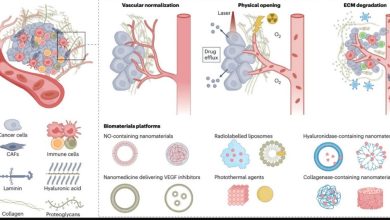How Sedation Dentistry Can Transform Your Dental Experience

Feeling a twinge of anxiety at the mere mention of the dentist? You’re not alone. For many people, dental visits can be nerve-wracking experiences filled with fear and apprehension. But what if there was a way to transform your dental experience into something calm, comfortable, and even enjoyable? Enter sedation dentistry – a game-changer for those who struggle with dental anxiety. In this blog post, we’ll delve into the world of sedation dentistry, exploring its various techniques, benefits, misconceptions, and more. Get ready to conquer your fears and take control of your oral health like never before!
Understanding the Fear of Dentists
The fear of dentists, also known as dental phobia or odontophobia, is more common than you might think. It’s a deep-rooted anxiety that can stem from various sources such as past traumatic experiences or the anticipation of pain and discomfort. For some, it may even be triggered by the sound of dental tools or the sterile environment of a clinic.
This fear can have significant consequences on oral health, as individuals often avoid seeking necessary dental care due to their overwhelming anxiety. Neglecting regular check-ups and treatments can lead to serious issues like gum disease, tooth decay, and even tooth loss.
Understanding this fear is crucial in order to address it effectively. Dentists who specialize in sedation techniques are well-versed in managing patients’ anxieties with compassion and empathy. By creating a calm and comfortable atmosphere through sedation dentistry, they aim to alleviate patients’ fears and ensure that necessary procedures are carried out without unnecessary stress.
By acknowledging your fears openly with your dentist, they can tailor an individualized treatment plan that incorporates sedation methods to help you feel relaxed during your appointments. This open communication allows for trust-building between patient and dentist – an essential factor in overcoming dental anxiety.
Sedation dentistry offers a range of benefits beyond just reducing anxiety levels. It enables longer procedures to be completed within fewer appointments since patients are able to remain calm throughout the process. Additionally, for those with sensitive gag reflexes or difficulty sitting still for extended periods of time, sedation dentistry provides much-needed relief.
It’s important to note that there are different types of sedation techniques available depending on the level of anxiety experienced by each patient. From mild forms like nitrous oxide (commonly known as laughing gas) which induces relaxation but allows patients to remain conscious; to moderate options such as oral medications taken prior to the procedure; all the way up to deep intravenous (IV) sedation where patients are nearly unconscious, but still able to respond to commands.
What is Sedation Dentistry?
Sedation dentistry is a revolutionary approach that aims to alleviate the fear and anxiety many people experience when visiting the dentist. It involves using medication to help patients relax during dental procedures, enabling them to receive the care they need without feeling overwhelmed or panicked.
There are different types of sedation techniques available, ranging from mild relaxation through oral medications to deep sedation administered intravenously. The specific method used will depend on the patient’s level of anxiety and the complexity of the procedure being performed.
One of the key benefits of sedation dentistry is that it can transform a person’s dental experience from one filled with dread to one characterized by calmness and comfort. By eliminating fear and discomfort, patients can receive necessary treatment more easily, leading to improved oral health in the long term.
The process of receiving sedation during dental procedures is straightforward. Prior to treatment, your dentist will assess your medical history and discuss which type of sedative is most suitable for you. On the day of your appointment, you’ll be given instructions on how to take any prescribed medications before arriving at the office.
Contrary to popular belief, undergoing sedation does not mean being completely unconscious throughout your procedure. Instead, you will reach a deeply relaxed state while remaining conscious enough to respond if needed.
Anyone who experiences significant dental anxiety or phobia may benefit from considering sedation dentistry as an option for their next visit. Additionally, individuals who have difficulty sitting still for extended periods or have sensitive gag reflexes may also find this technique helpful.
When seeking out a qualified and trustworthy sedation dentist, it’s important to do thorough research beforehand. Look for professionals who specialize in providing comfortable experiences for anxious patients and have received specialized training in administering various types of anesthesia safely.
In conclusion (not conclusive), if going to the dentist fills you with apprehension or even terror, don’t let those fears prevent you from getting essential oral healthcare services! Sedation dentistry can transform your dental experience, helping you overcome anxiety and receive the
Different Types of Sedation Techniques
When it comes to sedation dentistry, there are various techniques that can be used to help patients feel relaxed and comfortable during their dental procedures. The type of sedation used will depend on the individual’s level of anxiety and the complexity of the procedure.
One commonly used technique is nitrous oxide, also known as laughing gas. This involves inhaling a mixture of nitrous oxide and oxygen through a mask placed over the nose. Nitrous oxide induces a sense of relaxation and euphoria, making it easier for patients to tolerate dental treatments.
Oral sedation is another option that involves taking an oral medication prior to the appointment. The medication helps reduce anxiety and promotes a calm state of mind. Patients remain awake during the procedure but may feel drowsy or groggy.
For more complex procedures or individuals with severe dental anxiety, intravenous (IV) sedation may be recommended. This type of sedation allows for deeper relaxation by administering medications directly into the bloodstream through an IV line.
General anesthesia is reserved for extensive dental surgeries or cases where complete unconsciousness is required. Under general anesthesia, patients are completely asleep throughout the entire procedure.
Each type of sedation technique has its own benefits and considerations, which should be discussed with your dentist beforehand to determine which option is best suited for you.
Benefits of Sedation Dentistry
Sedation dentistry offers numerous benefits for individuals who experience dental anxiety or fear. One major advantage is that it helps patients feel more relaxed and comfortable during their dental procedures. By using sedation techniques, the dentist can create a calm and serene environment where patients can undergo treatment without feeling anxious or overwhelmed.
Another benefit of sedation dentistry is that it allows the dentist to perform multiple procedures in one sitting. Since patients are in a relaxed state, the dentist can work efficiently and complete various treatments during the same visit. This saves time for both the patient and the dentist.
Additionally, sedation dentistry enables individuals with sensitive gag reflexes or difficulty sitting still for long periods to receive necessary dental care. With sedation techniques, these issues become less problematic, allowing for a smoother and more successful dental experience.
Moreover, sedation dentistry provides pain relief throughout the procedure. Whether it’s through oral medications or intravenous (IV) anesthesia, patients do not have to worry about experiencing any discomfort while undergoing treatment.
Furthermore, sedation dentistry promotes better oral health by encouraging individuals who have avoided going to the dentist due to fear to seek regular dental check-ups and treatments. With regular visits made possible through sedation techniques, potential problems can be detected early on and treated promptly before they escalate into larger issues.
Opting for sedation dentistry can transform your dental experience by reducing anxiety levels during procedures, allowing for efficient completion of multiple treatments in one visit, accommodating specific needs such as sensitive gag reflexes or restlessness during appointments; providing pain relief throughout procedures; promoting regular dental check-ups leading to improved overall oral health.
The Process of Receiving Sedation During Dental Procedures
The process of receiving sedation during dental procedures is designed to help patients feel calm, relaxed, and comfortable throughout their treatment. It involves the administration of medication that helps reduce anxiety and fear associated with dental visits.
Before the procedure begins, your dentist will review your medical history to ensure that you are a good candidate for sedation dentistry. They will also discuss the different types of sedation options available and help you choose the one that best suits your needs.
On the day of your appointment, you will be given the prescribed sedative medication. The type of medication used will depend on the level of sedation required for your specific procedure. Some common forms include oral medications, inhalation (nitrous oxide), or intravenous (IV) sedatives.
Once the medication takes effect, you will enter a state of deep relaxation while still being conscious and able to respond to instructions from your dentist. Throughout the procedure, vital signs such as blood pressure and heart rate will be closely monitored by trained professionals to ensure your safety.
After completion of the dental treatment, any residual effects from the sedative medication should wear off relatively quickly. However, it’s important to have someone accompany you home after your appointment as you may still feel drowsy or groggy.
Sedation dentistry has revolutionized dental experiences for many individuals who suffer from dental anxiety or phobia. It allows them to receive necessary treatments in a stress-free environment without compromising their overall well-being.
Remember though; always consult with an experienced and qualified dentist who specializes in sedation dentistry before pursuing this option for yourself!
Common Misconceptions About Sedation Dentistry
When it comes to dental procedures, many people experience anxiety and fear. This can be due to past traumatic experiences or simply a fear of needles and drills. Fortunately, sedation dentistry offers a solution for those who struggle with dental phobia.
However, there are some common misconceptions surrounding sedation dentistry that may prevent individuals from considering this option. One misconception is that sedation dentistry is only for major procedures. In reality, sedation can be used for routine cleanings as well, especially for patients with severe anxiety.
Another misconception is that you will be completely unconscious during the procedure. While general anesthesia can be an option in certain cases, most often patients are in a relaxed state but still conscious and able to respond to their dentist’s instructions.
Some may worry about the safety of sedation dentistry. It’s important to note that trained professionals administer the medication and closely monitor your vital signs throughout the procedure.
There is a misconception that sedation dentistry is expensive. While costs may vary depending on your location and specific needs, many dental practices offer affordable options or payment plans to make it accessible to more patients.
By dispelling these misconceptions about sedation dentistry, more individuals can feel empowered to overcome their dental fears and receive the necessary treatments they need for optimal oral health!
Who is a Good Candidate for Sedation Dentistry?
Sedation dentistry has revolutionized the way dental procedures are perceived by patients. It offers a solution for individuals who experience fear or anxiety when visiting the dentist, allowing them to receive necessary treatments comfortably and stress-free. But who exactly is a good candidate for sedation dentistry?
Individuals with dental phobias or anxieties can greatly benefit from sedation dentistry. Whether it’s due to past traumatic experiences or simply feeling anxious about dental procedures, sedation techniques can help alleviate these fears and create a more relaxed atmosphere.
Additionally, patients who have difficulty sitting still for extended periods of time may find sedation dentistry beneficial. Some people have conditions such as ADHD or physical limitations that make it challenging to remain calm during dental treatments. With the help of sedatives, they can relax and cooperate with their dentist throughout the procedure.
Furthermore, those undergoing extensive or complex dental work may also be good candidates for sedation dentistry. Procedures such as oral surgery or full mouth reconstructions often require lengthy treatment times and multiple visits. Sedation allows patients to undergo these procedures comfortably without feeling overwhelmed.
It’s important to note that each individual’s suitability for sedation dentistry will be assessed on a case-by-case basis by a qualified dentist. Factors such as medical history, current medications, and overall health will be considered in determining whether someone is an appropriate candidate for this type of treatment.
Finding a Qualified and Trustworthy Sedation Dentist
When it comes to undergoing dental procedures, finding a qualified and trustworthy sedation dentist is essential. Here are some tips to help you find the right professional for your needs.
Do your research. Look for dentists in your area who specialize in sedation dentistry. Check their qualifications and credentials, ensuring they have the necessary training and experience.
Next, read reviews and testimonials from previous patients. This will give you insight into the dentist’s skills, bedside manner, and overall patient satisfaction.
Another important factor to consider is the type of sedation techniques offered by the dentist. Different individuals may require different levels of sedation depending on their anxiety levels or specific dental procedure.
Additionally, consider scheduling a consultation with potential dentists before making a decision. This will allow you to ask questions about their approach to sedation dentistry and get a feel for their professionalism and communication style.
Trust your instincts. If something doesn’t feel right or if you don’t feel comfortable with a particular dentist, don’t hesitate to keep looking until you find someone who meets all your criteria.
Remember that finding a qualified and trustworthy sedation dentist is crucial for ensuring a positive dental experience while addressing any fears or anxieties you may have.
Conclusion: Overcoming Dental Anxiety with Sedation Dentistry
With the advancements in dental technology and techniques, there is no reason for anyone to fear going to the dentist anymore. Sedation dentistry has revolutionized the way dental procedures are performed, allowing patients to overcome their anxiety and receive necessary treatment comfortably.
By understanding the fear of dentists and addressing it head-on through sedation dentistry, individuals can finally take control of their oral health without fear or stress. Whether it’s a simple cleaning or a more complex procedure, sedation allows patients to relax and feel at ease throughout their dental visit.
Sedation dentistry offers various techniques that cater to different levels of anxiety. From nitrous oxide inhalation to oral medication or IV sedation, your dentist can determine which method is most suitable for you based on your individual needs.
The benefits of sedation dentistry cannot be overstated. Not only does it help alleviate anxiety during dental procedures, but it also allows for faster treatment times as well as improved patient comfort. Patients who opt for sedative techniques often report feeling little-to-no discomfort during their appointments, making visits to the dentist a far more pleasant experience overall.
It’s important to note that while some misconceptions about sedation dentistry exist, these are largely unfounded. Modern practices ensure patient safety by monitoring vital signs throughout the procedure and having trained professionals administering the sedatives.
Almost anyone can benefit from sedation dentistry if they struggle with dental anxiety or have had traumatic experiences in the past. It is particularly helpful for those with sensitive gag reflexes or difficulty sitting still in the dentist’s chair.
Finding a qualified and trustworthy sedation dentist is crucial when considering this option. Research local providers who specialize in sedative techniques and read reviews from previous patients to ensure you find someone reputable who will prioritize your comfort and safety.


